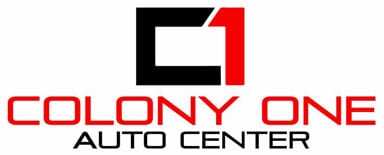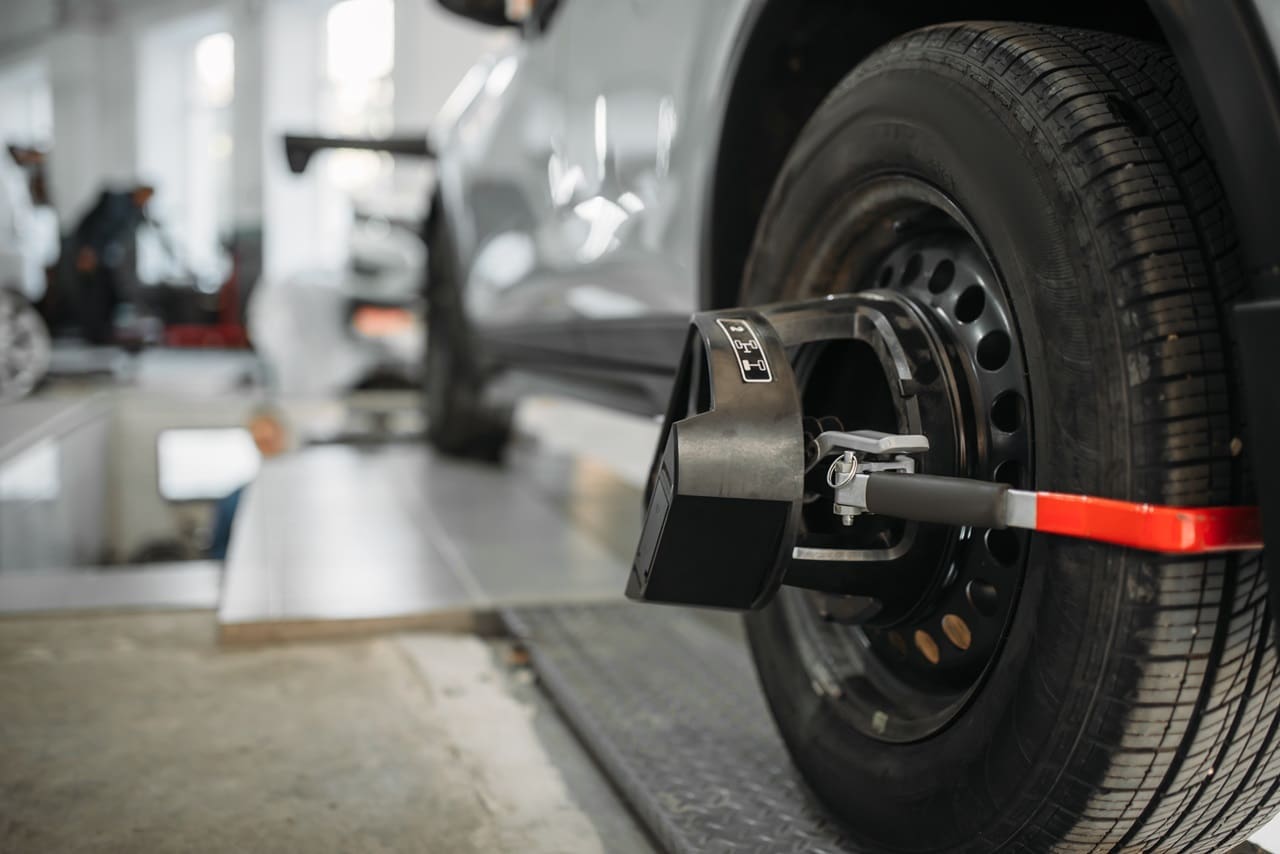Sure, you’ve heard of automotive alignment, but do you know exactly what it is and why you should care about it? Subtle changes in your automotive alignment can affect the way your car drives and create unnecessary tire wear. Get the facts about automotive alignment straight with this quick guide to all things alignment.
1. What is a car alignment?
Automotive alignment refers to the angles of the wheels relative to the center of the frame and the ground. When a technician is checking your car’s alignment, they are making sure these angles match the specifications determined by the manufacturer.
Psst… Tired of not understanding the vehicle you drive? Continue your car maintenance education by checking out these additional posts:
- How much does a car inspection cost?
- Why is white smoke coming from the exhaust pipe?
- How long does an oil change last?
- How to tell why your car air conditioner is making a noise.
- Car heater blowing cold air when idle?
2. How soon after getting new tires should I get an alignment?
It’s wise to have your tires aligned after you have them replaced. That way, you lessen the risk of your tires starting to wear just after you buy them. As a result, you can lengthen the amount of time between tire replacements. You should always get a wheel alignment after you’ve gotten your tires replaced.
3. How often should I get a tire alignment?
We recommend that you have your alignment checked at least once a year (unless you notice your car pulling in one direction or uneven tread wear on one or more of your tires). If you regularly drive on rough roads (we’re looking at you, Houston potholes), you might want to check on your tire alignment twice a year.
4. What happens if you drive a car that needs an alignment?
The primary way most mechanics check for bad alignment is by checking your tire’s tread, but we recognize that the average person probably won’t check their tire tread often. Instead, drivers are more likely to notice that their alignment is bad when their car starts to pull in one direction. Additional common signs includes an off-center steering wheel and steering wheel.
5. What happens if you don’t get a tire alignment?
If you don’t get a tire alignment when needed, your tires will experience premature wear. However, rotating your tires can help stave off the need for an alignment. The standard interval between tire rotations is every 6 – 7 thousand miles.
6. Can bad alignment ruin your tires?
Yes, absolutely. As stated before, bad alignment causes premature wear on your tires. This is just one reason why it’s important to have your automotive alignment performed by a professional.
7. Do I need a two-wheel or four-wheel alignment?
A four-weel alignment is almost always the preferred way to align a vehicle. Some vehicles don’t have adjustable rear suspension, in which case, it’s advisable to have the front tires adjusted relative to the rear. This latter kind of adjustment is known as a “thrust alignment.”
8. Can you throw your car out of alignment?
Yes! It’s actually a normal part of your car’s wear and tear for it to get out of alignment every once in a while — that’s why we recommend getting your car’s alignment checked annually. This being said, there are definitely things you can do that will negatively affect you car’s alignment more quickly than normal:
- Hitting curbs
- Driving quickly over speed bumps and/or potholes
- Getting in an accident (be it a fender bender, major accident, or run-in with an unfortunate squirrel)
9. How much does it cost to get an alignment?
The cost of an alignment varies depending on the type of car, the type of alignment (two or four-wheel), and the shop that performs the alignment. The mechanics at Colony One Auto Center will provide you with a cost estimate before starting work.
10. What’s the best automotive alignment shop near me?
If you suspect your car is in need of automotive alignment, bring it to Colony One Auto Center. Our experts can identify any worn components that are no longer providing their intended function.
Call Colony One Auto Center at 281-800-9209 or contact us online today to receive an estimate on your alignment.
Related Resources:

